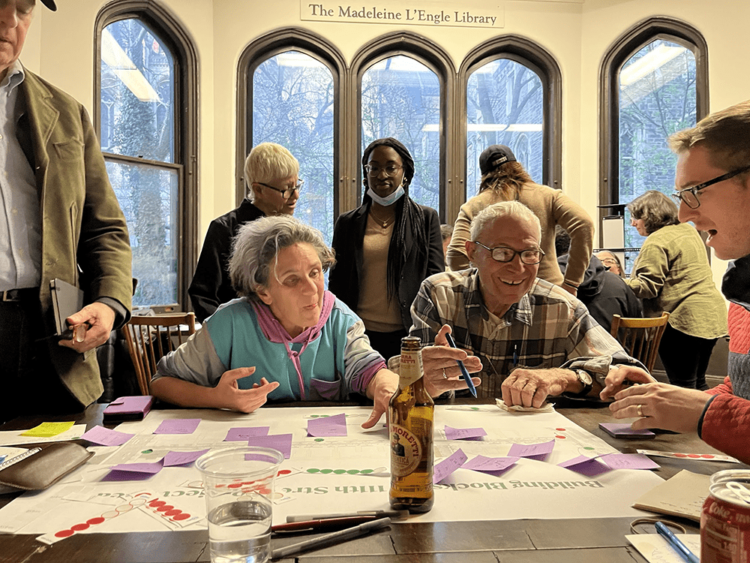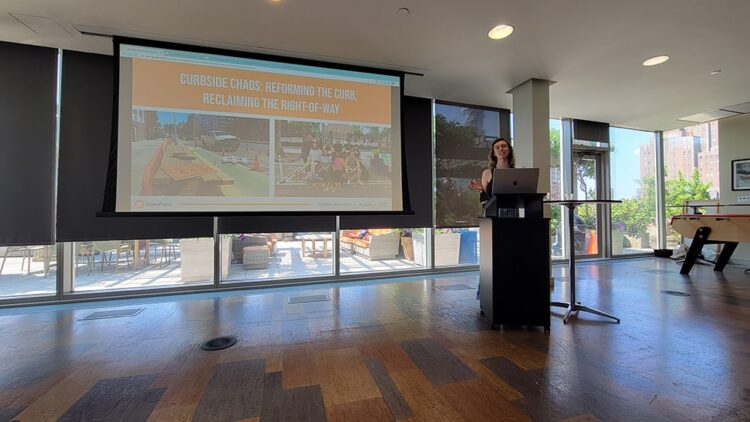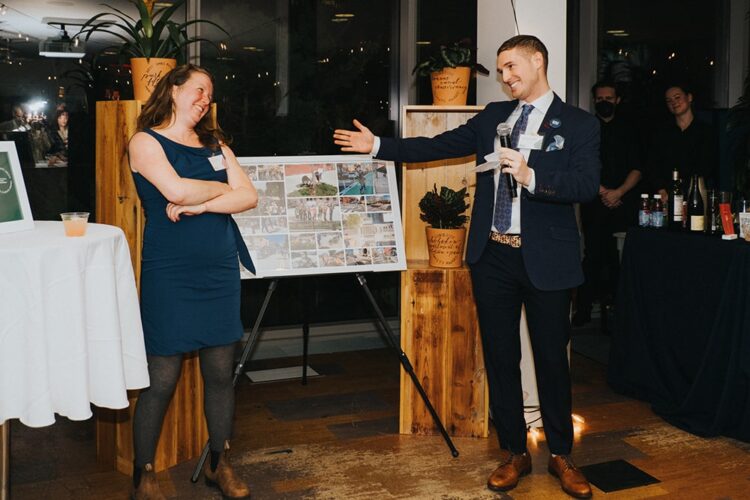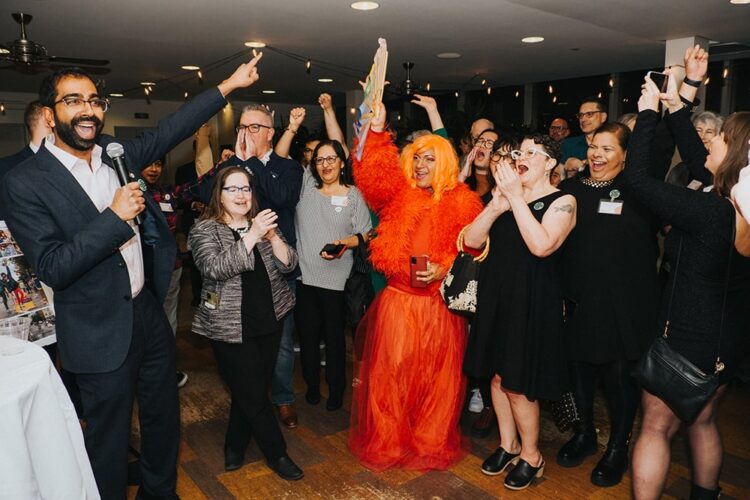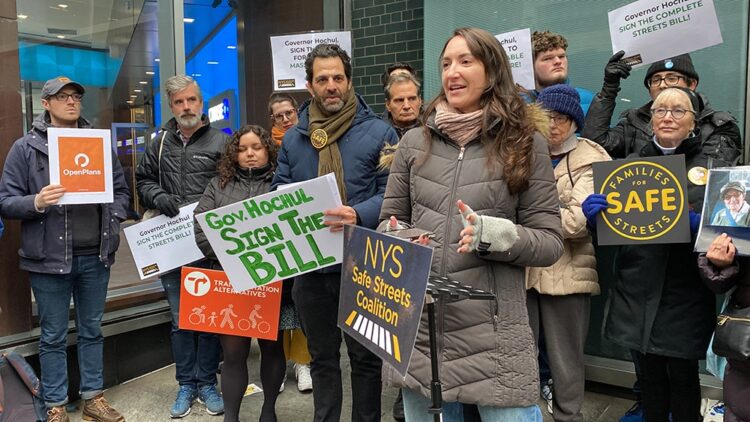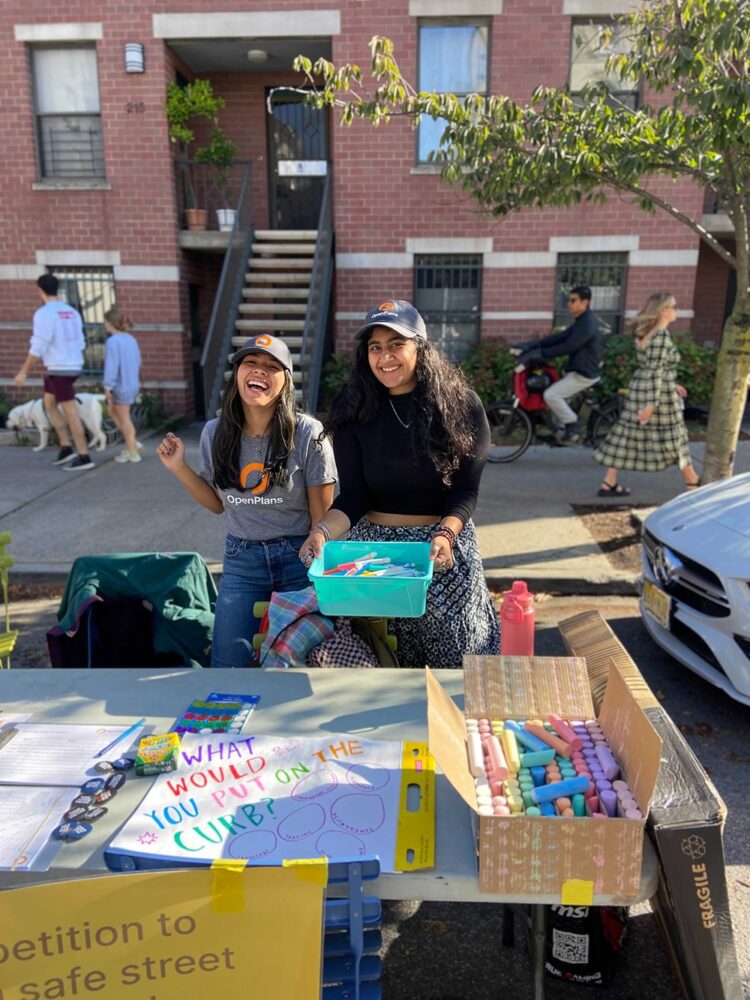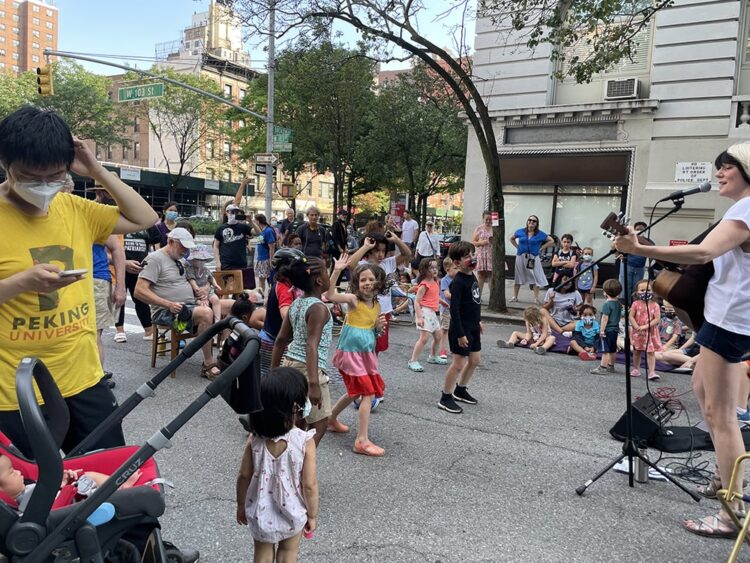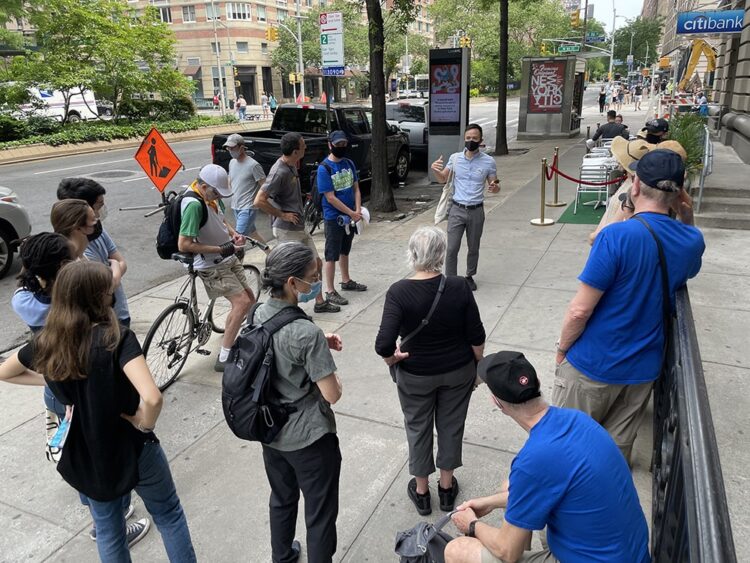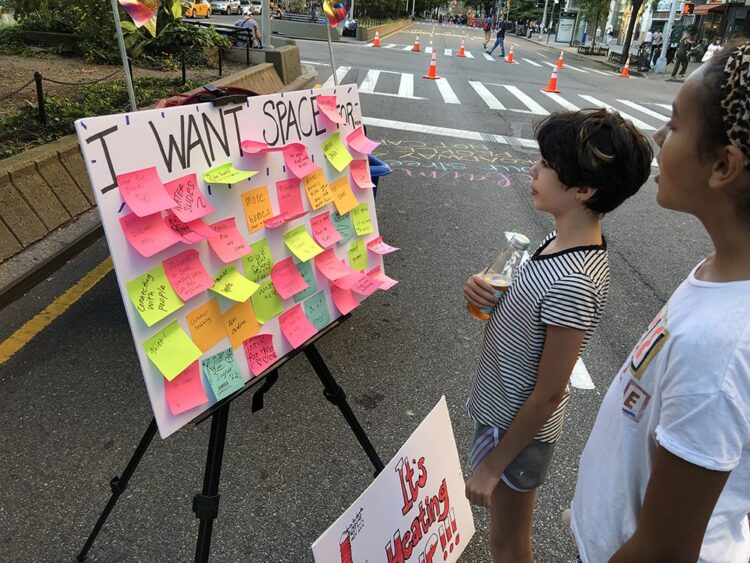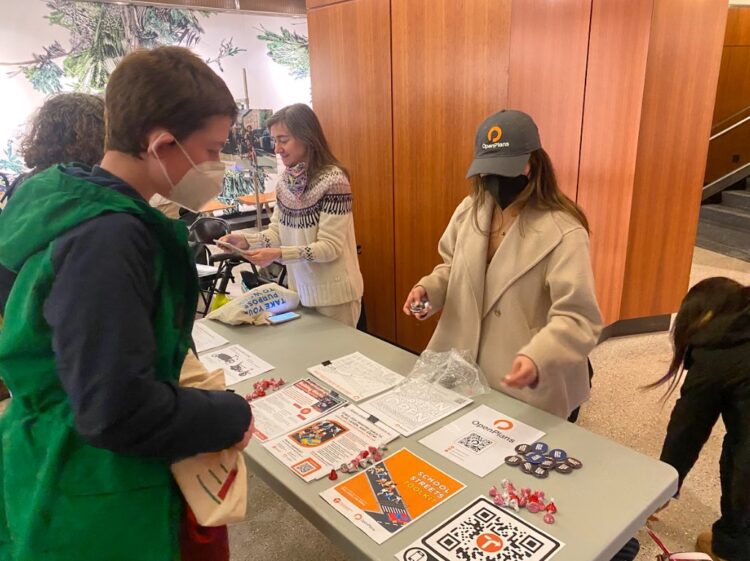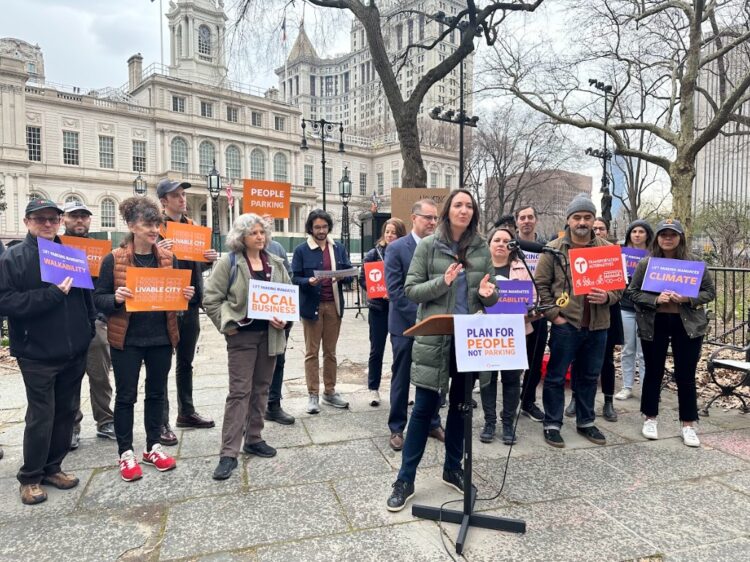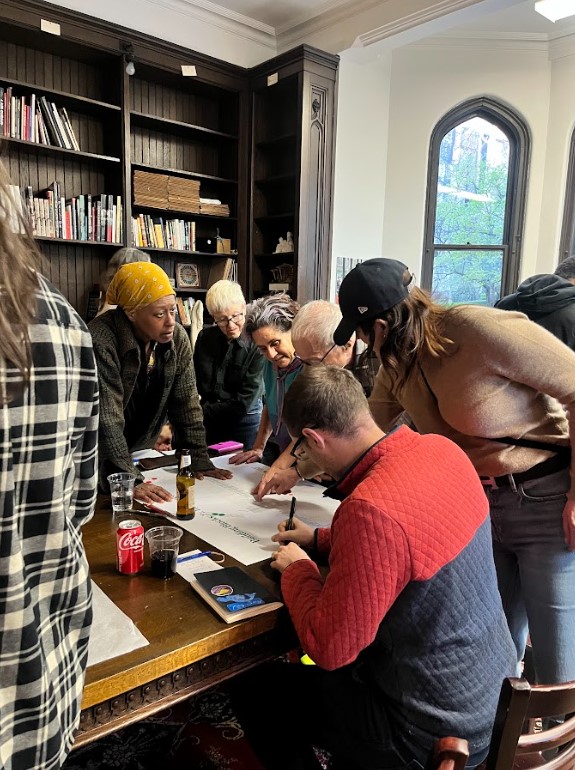
Open Plans
2023- $15,000 General Support
Founded in 1999 as a nonprofit organization dedicated to making New York City more livable, Open Plans works to foster a more connected relationship between New Yorkers, their streets, and their city government. In its early years, the organization focused on developing mapping tools as a way to analyze the issues that affect New Yorkers on a block-by-block basis. Using the information gathered, the organization began to not only map the issues but develop and propose solutions. Topics included public transportation; the use of streets as spaces for community gathering, neighborhood celebration, and events; public safety challenges caused by car dominance; lack of infrastructure for micromobility and pedestrians; and the desire for more equitable access to accessible, safe, public spaces.
In 2004, Open Plans launched Streetfilms, a project that produces and publishes short films highlighting best practices for transportation systems and public spaces around the world. These informative, playful, and inspiring films continue to fuel advocacy efforts today — and garner huge wins the world over, including the launch and expansion of a robust protected bike lane network in New York City, bike access across the Queensboro and Brooklyn Bridges and complete redesigns of iconic areas such as the Meatpacking District in Lower Manhattan.
In 2006, Open Plans launched Streetsblog, a daily news source providing deep dives and insider scoops, chronicling the transportation and livable streets scene in New York City and beyond. Inspiring offshoots in many of the major cities in the United States, Streetsblog has become a one-stop shop for all the news that’s fit to discuss regarding transportation, policy, planning, advocacy, budgets, and more. Its readership includes hobbyists, urbanism professionals, and city officials alike. From their annual Parking Madness awards to their recent coverage of the fight for safe and equitable public spaces for all, including the right to protest and the rights of delivery workers, Streetsblog is always on the cutting edge.
In 2008 and 2009, Open Plans launched the New York City Streets Renaissance Campaign, in collaboration with Transportation Alternatives and Project for Public Spaces. This campaign challenged the auto-centric policies that create congested and unsafe, inhospitable streets. This work led to the first protected bike lanes in New York City, along 9th Avenue in Chelsea, along with years of streetscape changes on the Upper West Side.
Between 2010 and 2015, Open Plans built on their success and merged their tech and advocacy foci, working with municipalities on tools for mapping and advocated for open source data tools for people to engage with their communities. The organization created maps allowing people to indicate issues in their neighborhoods, specifically around mobility and public space. Working with schools became a major focus; a new education and advocacy arm of the organization taught students how to identify safety issues on their commutes to school and empowered them to navigate their paths more safely. This work often led to students learning more about urban design and civics. Through drawings, petitions, and letters, students spoke at community boards and even engaging with elected officials, learning the power of civic engagement.
By late 2018, StreetopiaUWS was created to reinvest in Open Plans’ long-standing work in the Upper West Side neighborhood of Manhattan. Rooted in grassroots advocacy, Streetopia’s debut campaign was launched to educate people about public space management and start advocating for the city to care for public spaces, especially in residential areas. Today the place-based project works intimately with Upper West Side residents, decision makers, and other stakeholders to achieve safer bike routes and promote a people-centered mindset to placemaking and planning.
The Covid-19 pandemic created unprecedented challenges for New York City but ushered in a new era for Open Plans. As the city was forced to repurpose space for safe, outdoor public gatherings, many guiding principles of livability and people-centered space became commonplace. Suddenly, congested streets were transformed into car-free community space; curb lanes once relegated to parking were transformed into business-saving outdoor cafes. Open Plans seized on this spirit of innovation and gained momentum. The new Open Streets program offered a first-ever opportunity for communities to reprogram their streets for strolling, playing, dancing, and learning – and led to Open Plans’ campaign for a central Office of Public Space Management that would care for and invest in these burgeoning spaces as city services. The organization hired new policy expertise and pursued systemic change in city government while connecting directly with communities at the grassroots level.
This dual focus, with Streetsblog and Streetfilms creating compelling media, is a hallmark of Open Plans’ unique approach. Today, Open Plans continues to grow its nimble and focused staff. With a focus on advocacy, journalism, and inspiring film, Open Plans is illuminating new possibilities and creating meaningful change for every resident of New York City.


